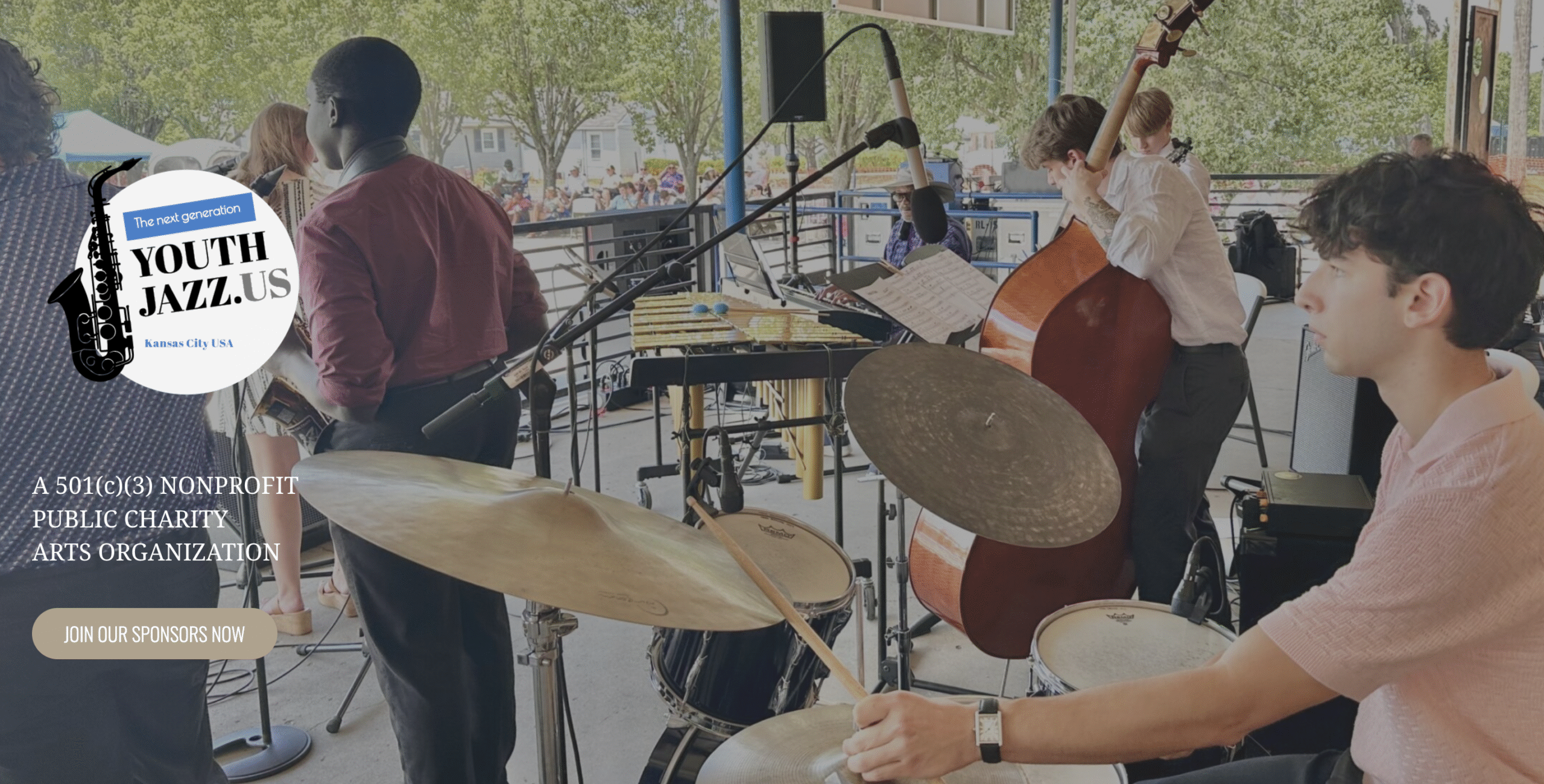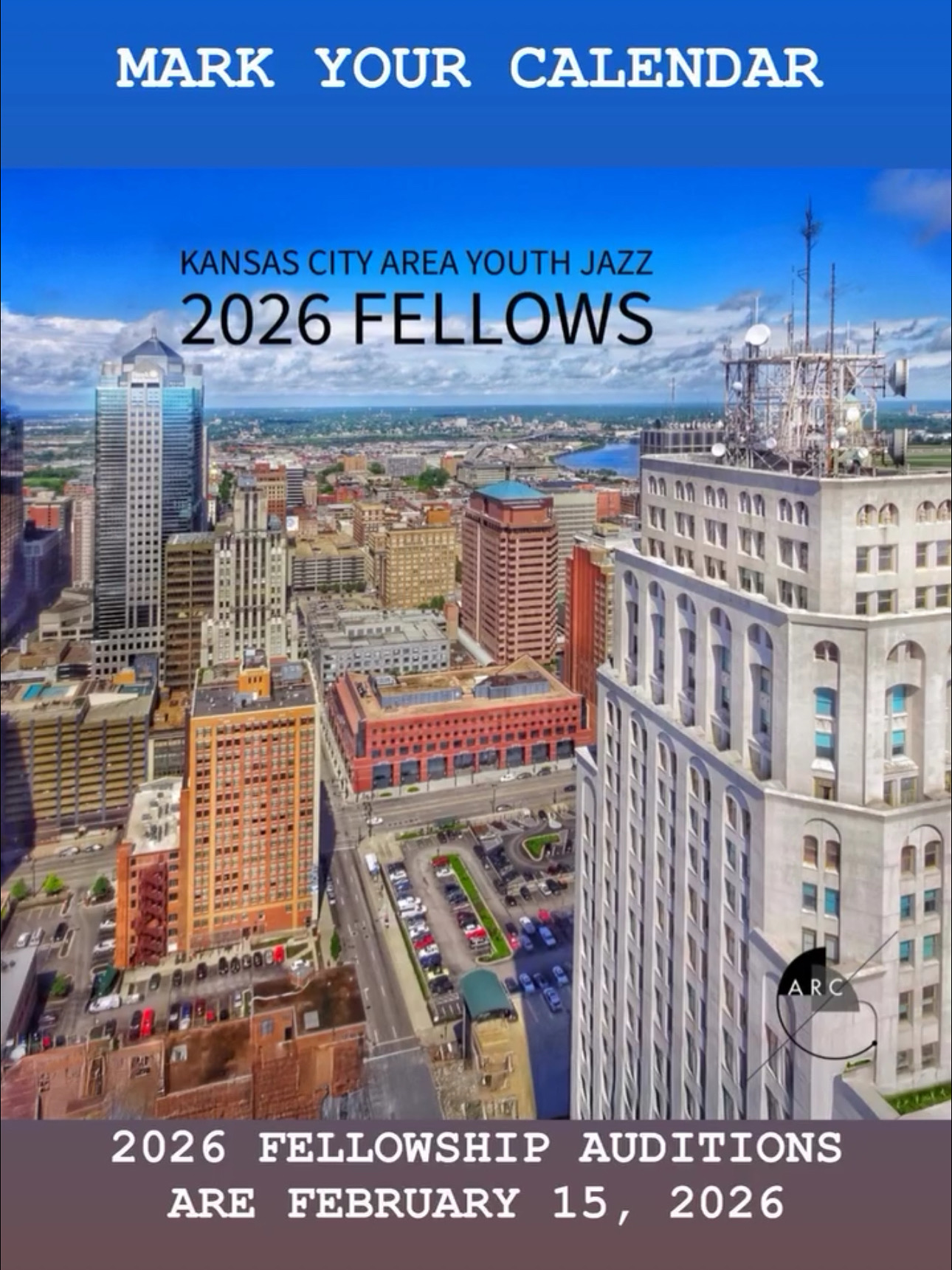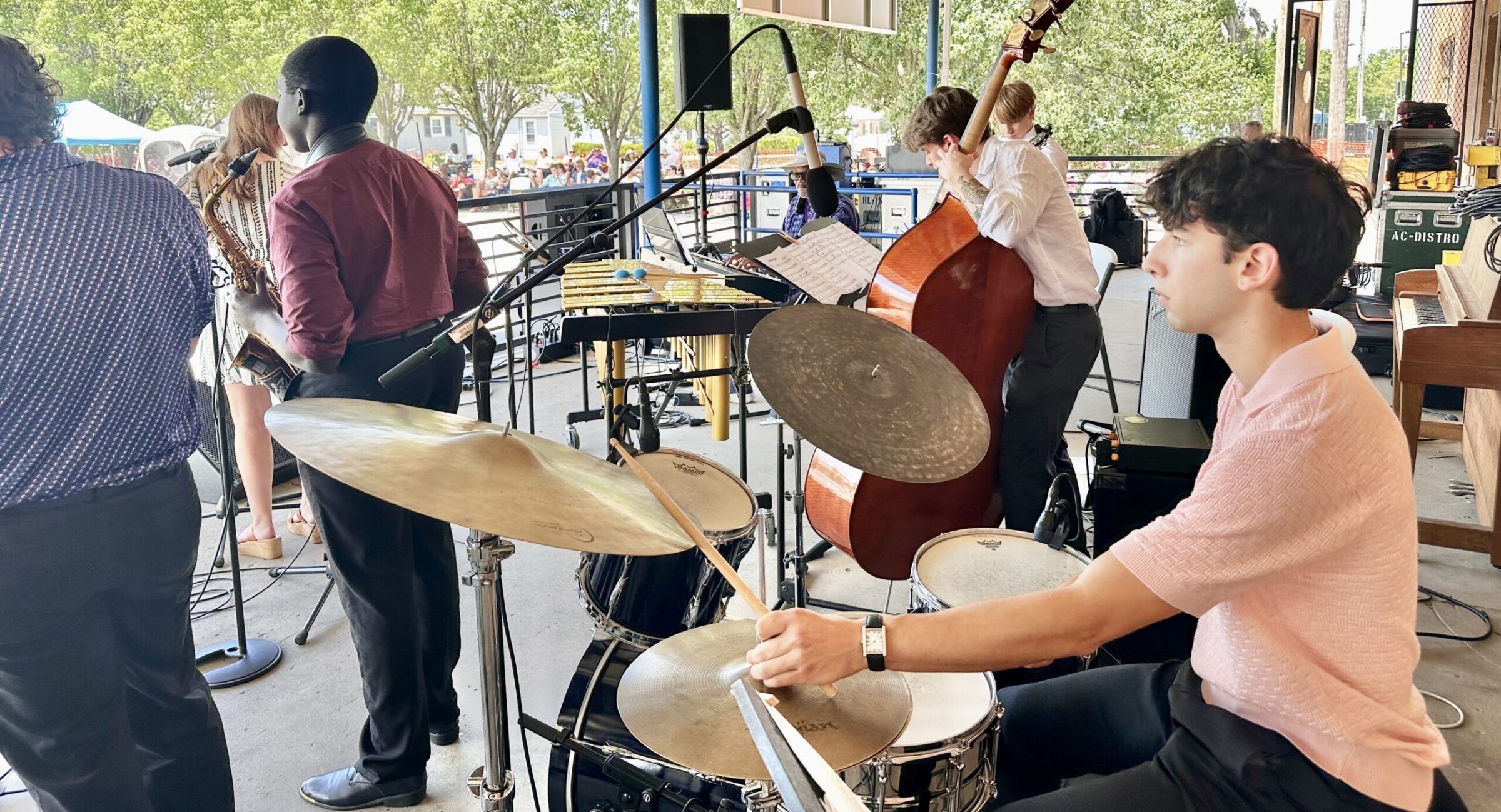SEASON 8 • ESTABLISHED 2018
MERIT-BASED PROGRAM
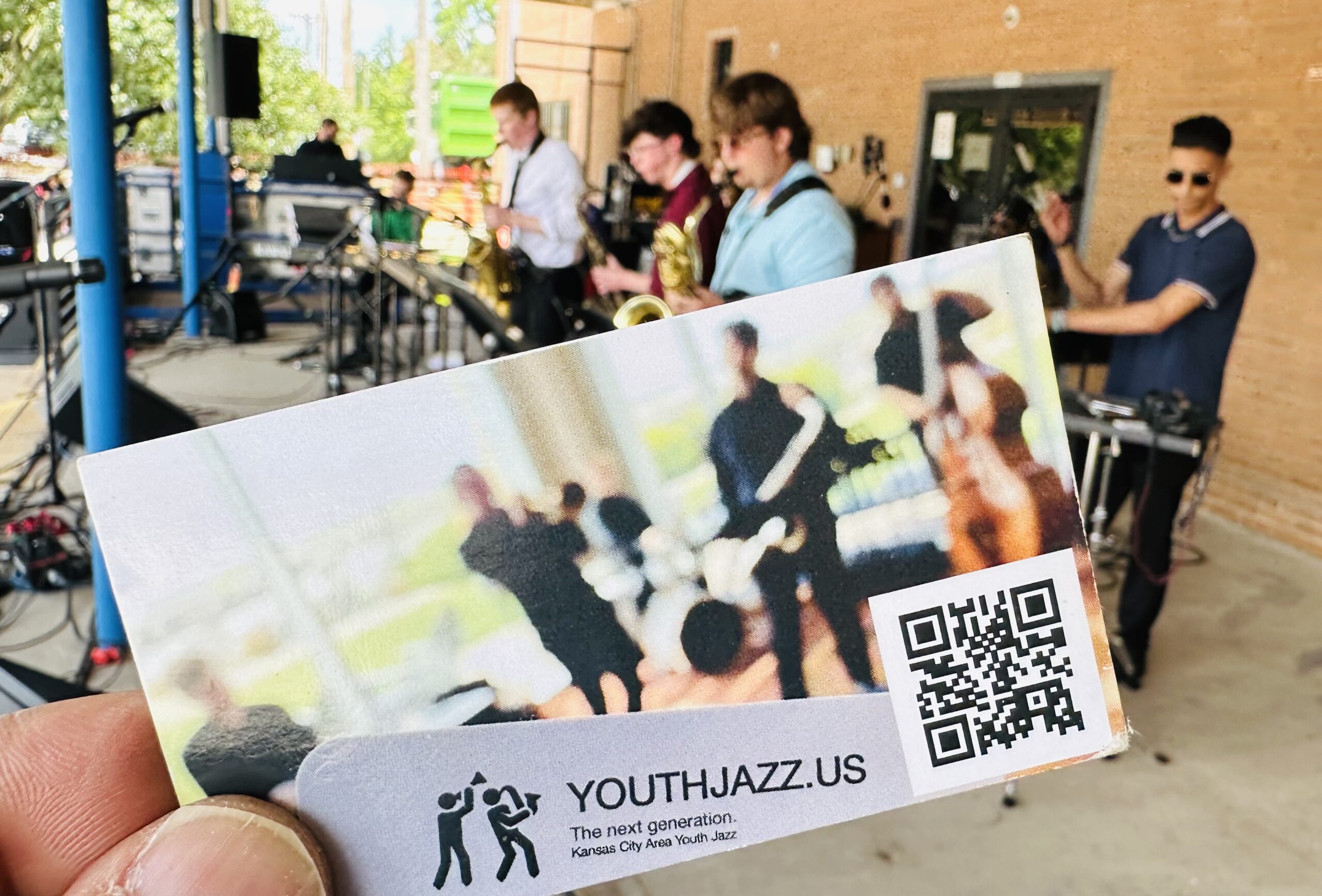
ABOUT OUR TUITION-FREE FELLOWSHIP
THE NEXT GENERATION
We conduct brief, but rigorous auditions for Fellowships on the third Sunday in February and then announce the individual selections and ensemble assignments in March each season.
Rehearsals are on Sunday evenings during our season of April, May, June, and July with no rehearsals on Memorial Day or Fourth of July weekends.
Youth Jazz Fellows typically perform Community Concerts during June or July and also perform paid performances in the greater KC area community.
Commitment to attend all rehearsals, events, and performances is required. Each season culminates with recording an album in a professional recording studio that’s commercially released worldwide on a professional record label.
We have capacity for four ensembles and bring in noted professionals for master classes. All participants accept our policies, terms, and conditions. Program Guidelines, Terms, and Conditions: Fellows | Consultants | Privacy Policy
PLAY FOR US IN FEBRUARY
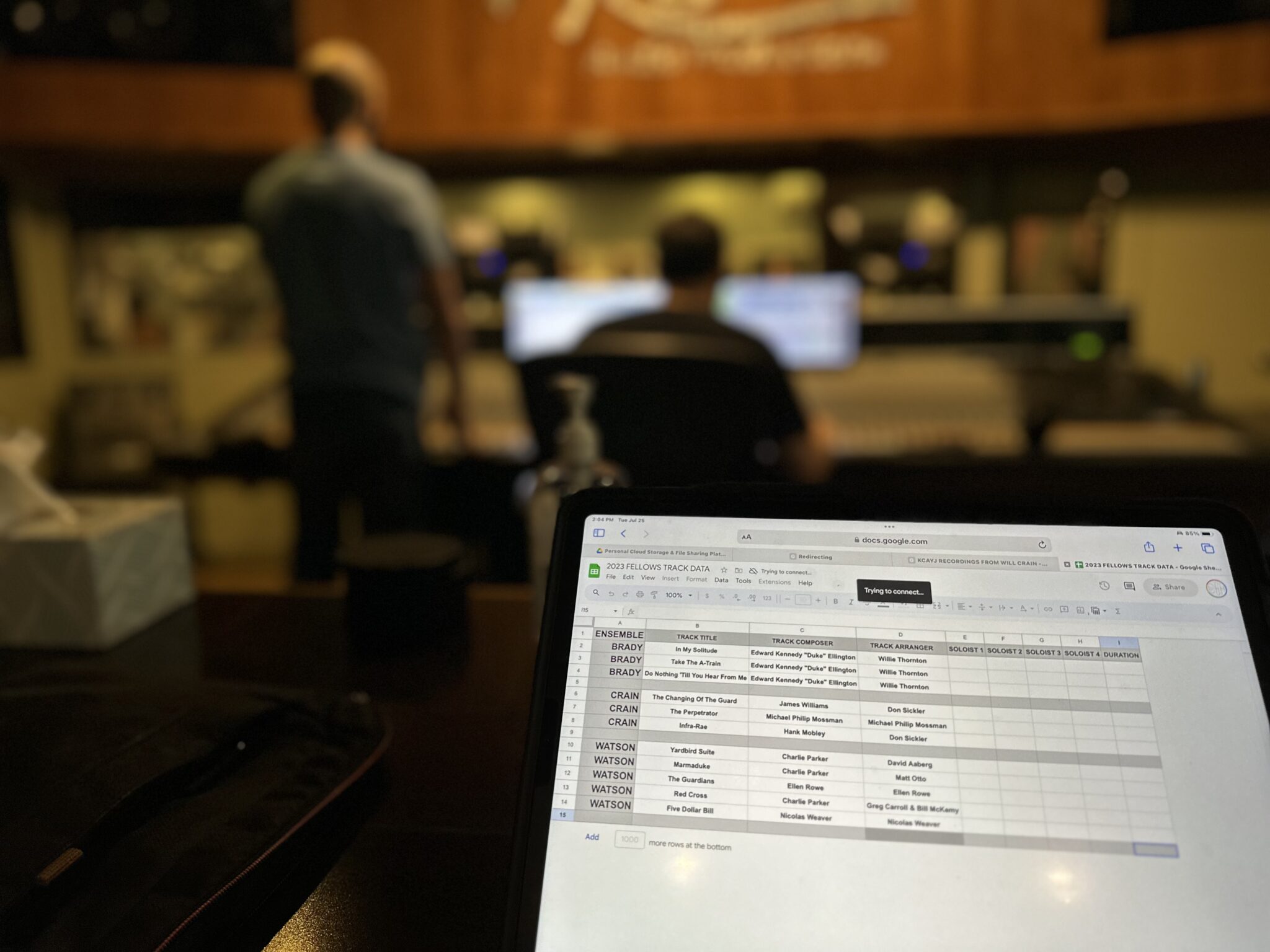
ABOUT OUR AUDITION
The Youth Jazz Fellowship Audition is a brief 15-minute process that consists of the following 4 elements:
- PERFORMING ALL 12 MAJOR SCALES IN 60 SECONDS OR LESS
- IMPROVISE OVER 12-BAR JAZZ BLUES IN THE KEY OF F
- PERFORM A REAL BOOK STANDARD WITH IMPROVISATION
- CANDIDATE INTERVIEW
WORK WITH SOME OF THE BEST IN THE MUSIC INDUSTRY
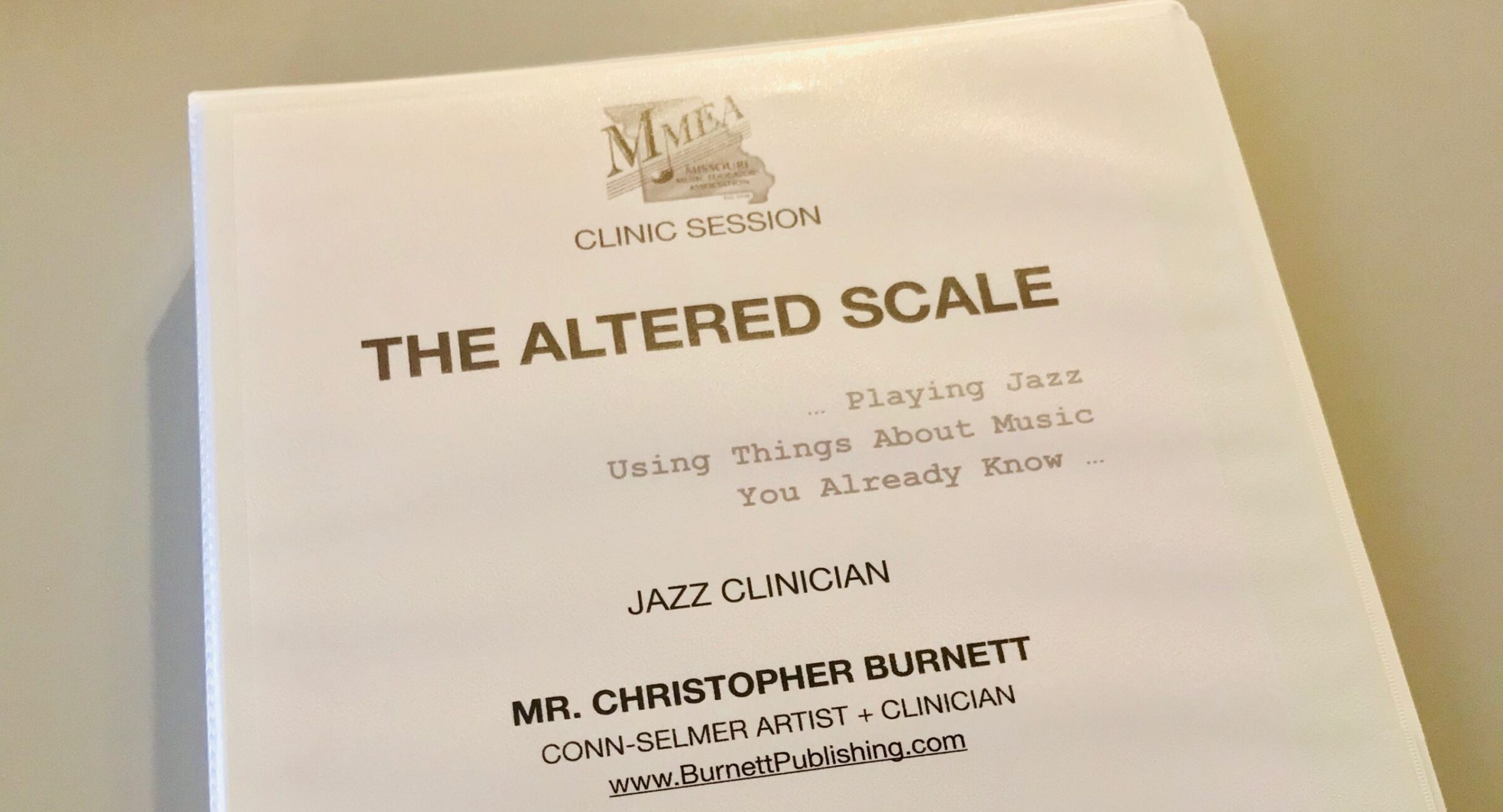
ABOUT OUR LEADER
Mr. Christopher Burnett is a distinguished and respected woodwind artist, composer and educator based in his native Kansas City area.
He is a master improviser, composer, and jazz educator himself, who has taught formally at the university level and gained professional experience touring around the world during his active duty career with notable military musical organizations.
Mr. Burnett founded Kansas City Area Youth Jazz Inc. in 2018 and incorporated it as a nonprofit public charity before the program’s 2024 season. He works with other high-level teaching artists in this program.

Mr. Burnett’s biography and resume are quite substantial, encompassing several decades of professional success that include many significant contributions in the following areas:
(1) Music Education – We began our private music teaching practice in 1983 during our off-duty hours while still on active duty military serving with Army bands. It’s proven to be a great opportunity for engaging in community service using our professional skills as musicians and teaching artists. And it’s also proven to be a tangible opportunity to positively impact the lives of young people wherever we are in the world. An active member of the National Association for Music Education, all of our students have benefited from these studies as validated over several decades and many are now successful musicians or teachers themselves. Portfolio details are available at The Burnett School of Music website.
(2) Music Performance – Our performing artist activities are centered around Christopher Burnett Ensembles and Clinics. This activity includes community concerts, master classes, music clinics, and serving Music Education Associations around the country as an adjudicator and subject matter expert. Endorsed by the Conn-Selmer Inc. and Henri Selmer (Paris) companies we’ve performed tens of thousands of activities over decades. Portfolio samples are here.
and (3) Music Publishing – As a Broadcast Music Inc (BMI) Composer our publishing activities include a significant commercial audio recording discography, our published print sheet music catalog of select works from our BMI catalog, and an ever-expanding catalog of music lesson plans and music subject matter expert clinics. Portfolio samples are found at BurnettPublishing.com.
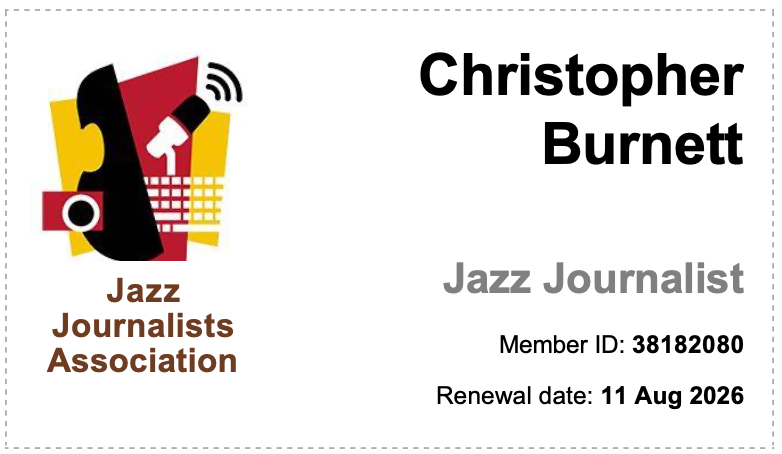
WHAT OUR COLLEAGUES THINK

YOUTH JAZZ TESTIMONIALS
DR. CARL ALLEN: UNIVERSITY OF MISSOURI-KANSAS CITY
“The Kansas City Area Youth Jazz organization is one of the finest organizations that I have ever worked with for teaching young people the art of jazz. I wished that I had something like this as a young person and now I am always looking to recruit some of those students into my program at UMKC. They are doing great work.”
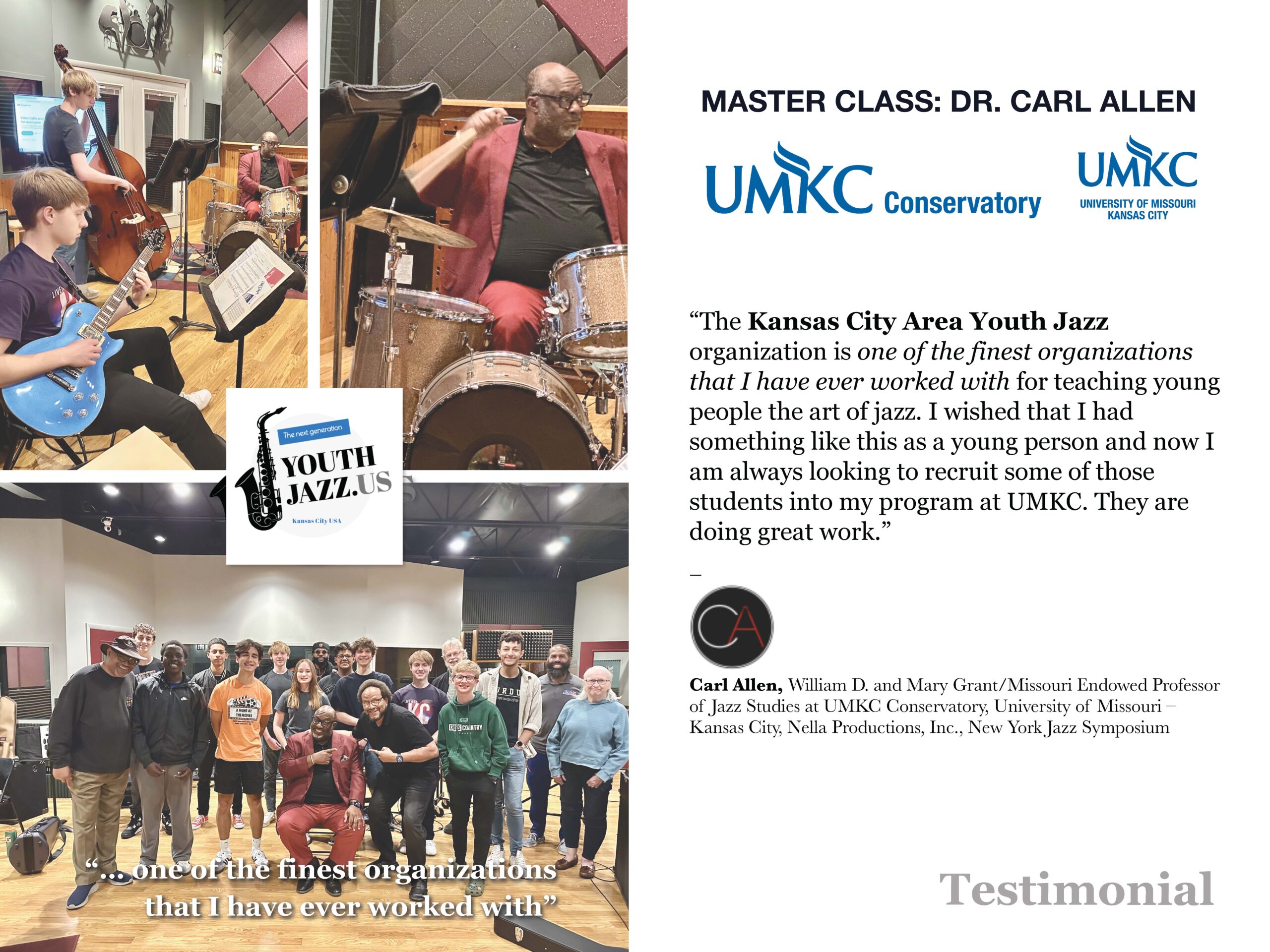
PROF. MATT OTTO: THE UNIVERSITY OF KANSAS
The Youth Jazz program is making a profound and lasting impact in the Kansas City jazz community by empowering young musicians and keeping the spirit of jazz vibrantly alive for future generations.
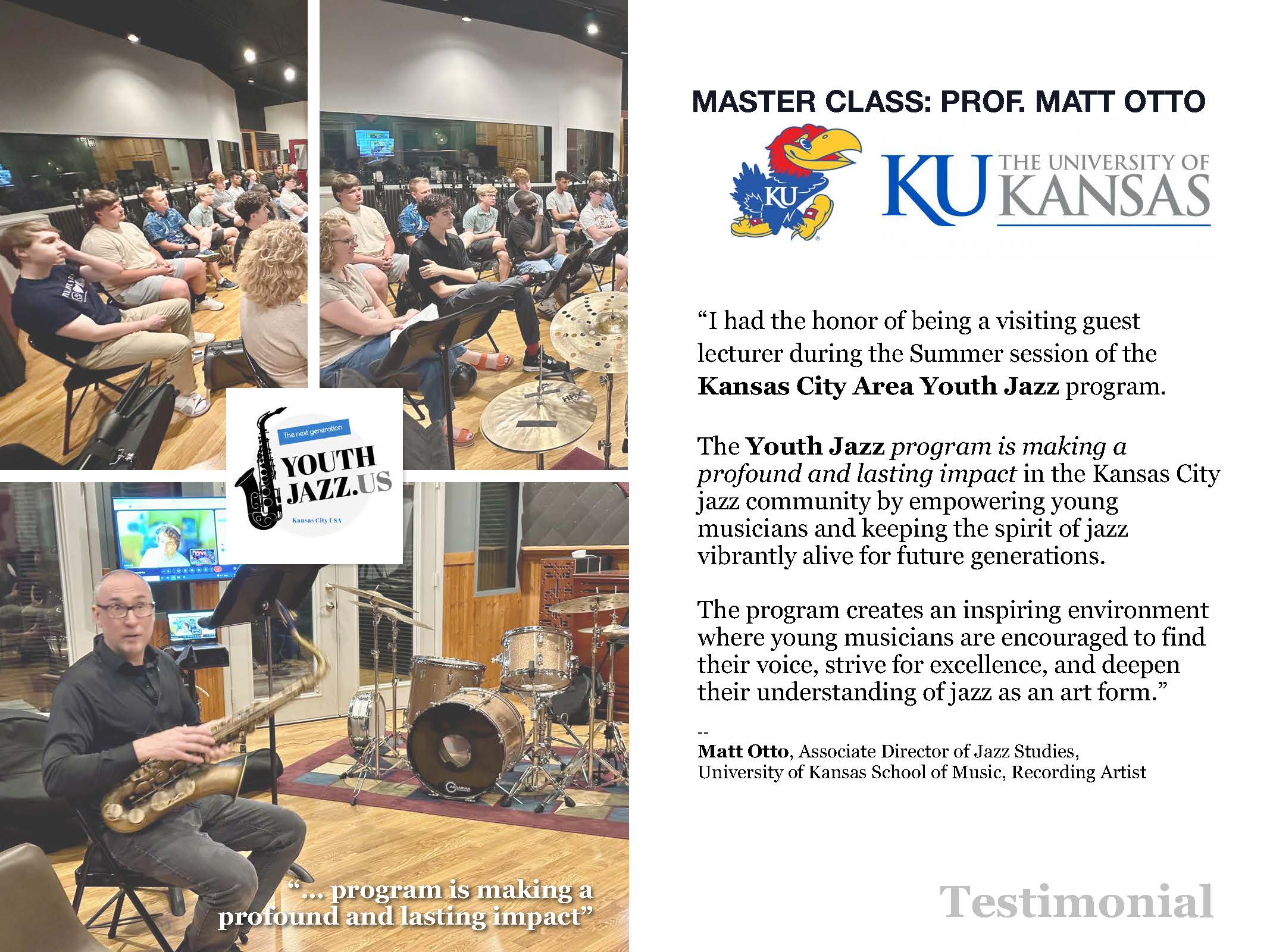
DR. DAN THOMAS: OTTAWA UNIVERSITY
“Kansas City Area Youth Jazz is a creative contemporary music education initiative that fills a needed void in the greater Kansas City metropolitan area. The education provided to the students in one of the finest recording studios in the Midwest is a true blessing for each participant. This is one of few programs in the nation that not only focuses on creating, rehearsing, and performing music, but also recording a culminating album that students
can enjoy for a lifetime.”

MEET OUR PROFESSIONAL TEACHING ARTISTS
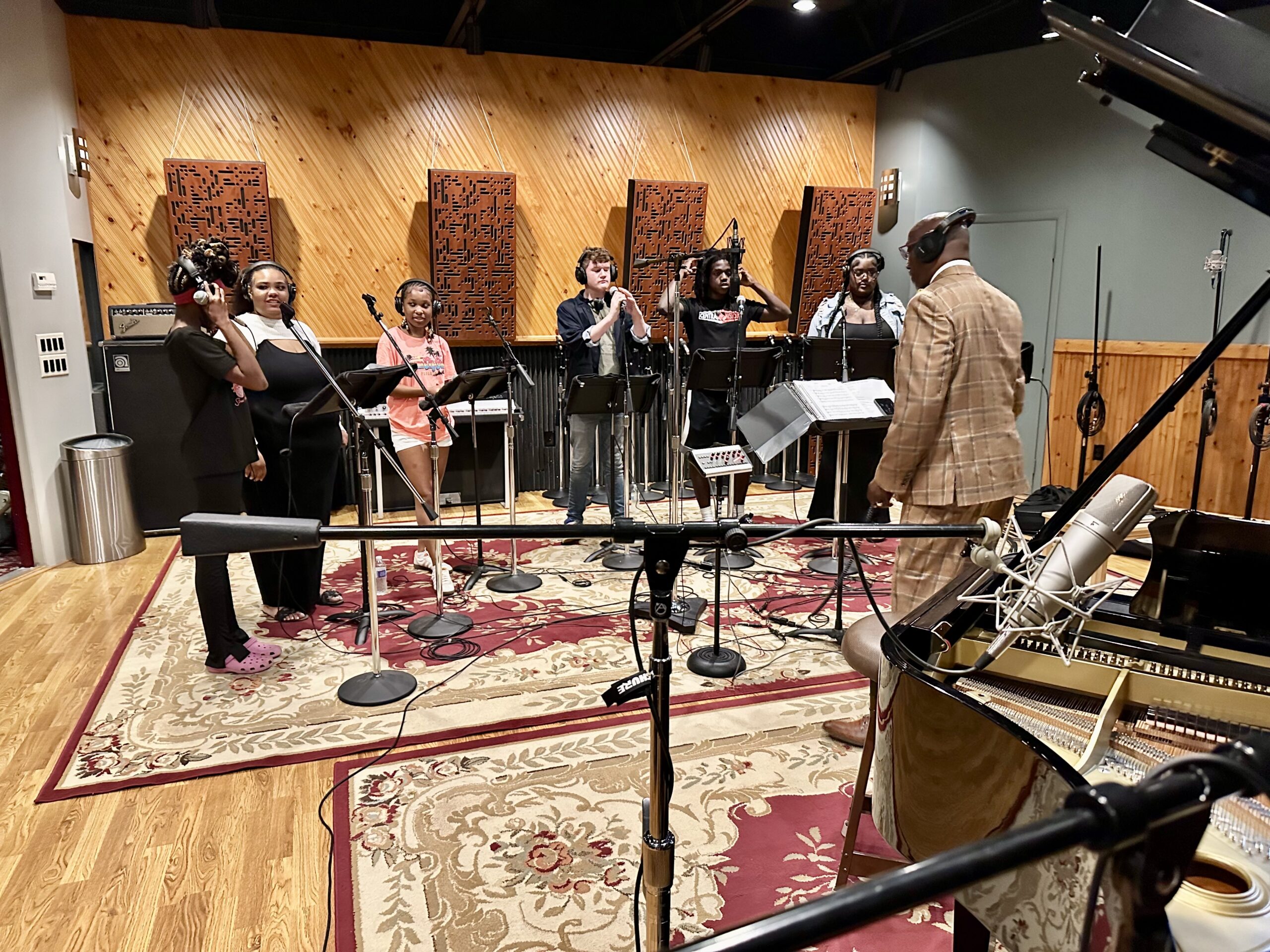
ABOUT OUR FEATURED CLINICIANS
MR. GREGORY A. CARROLL
THE BOBBY WATSON ENSEMBLE
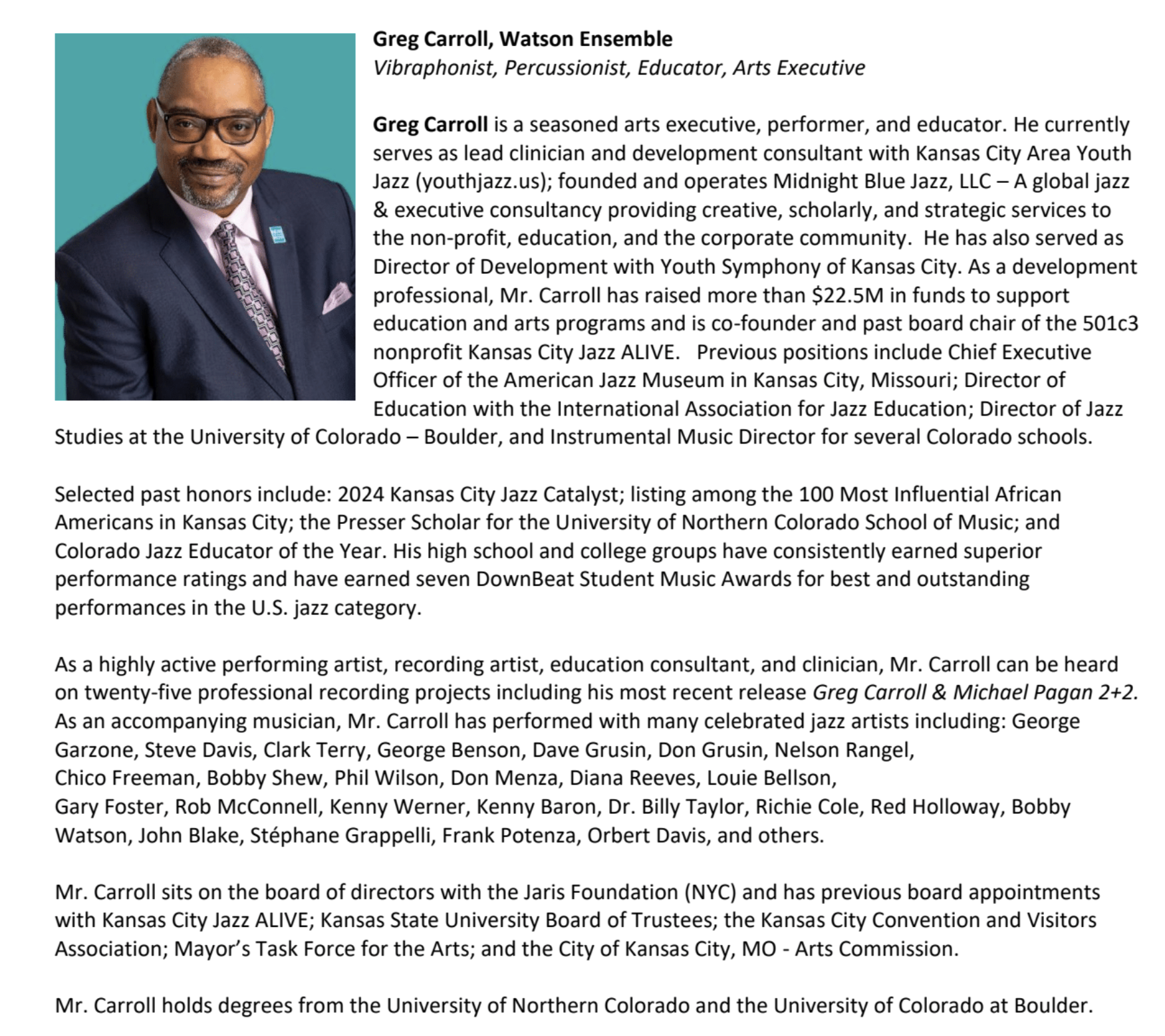

MR. HOUSTON M. SMITH
THE BILL CRAIN ENSEMBLE


REV WILLIE M. THORNTON
THE LEON BRADY ENSEMBLE

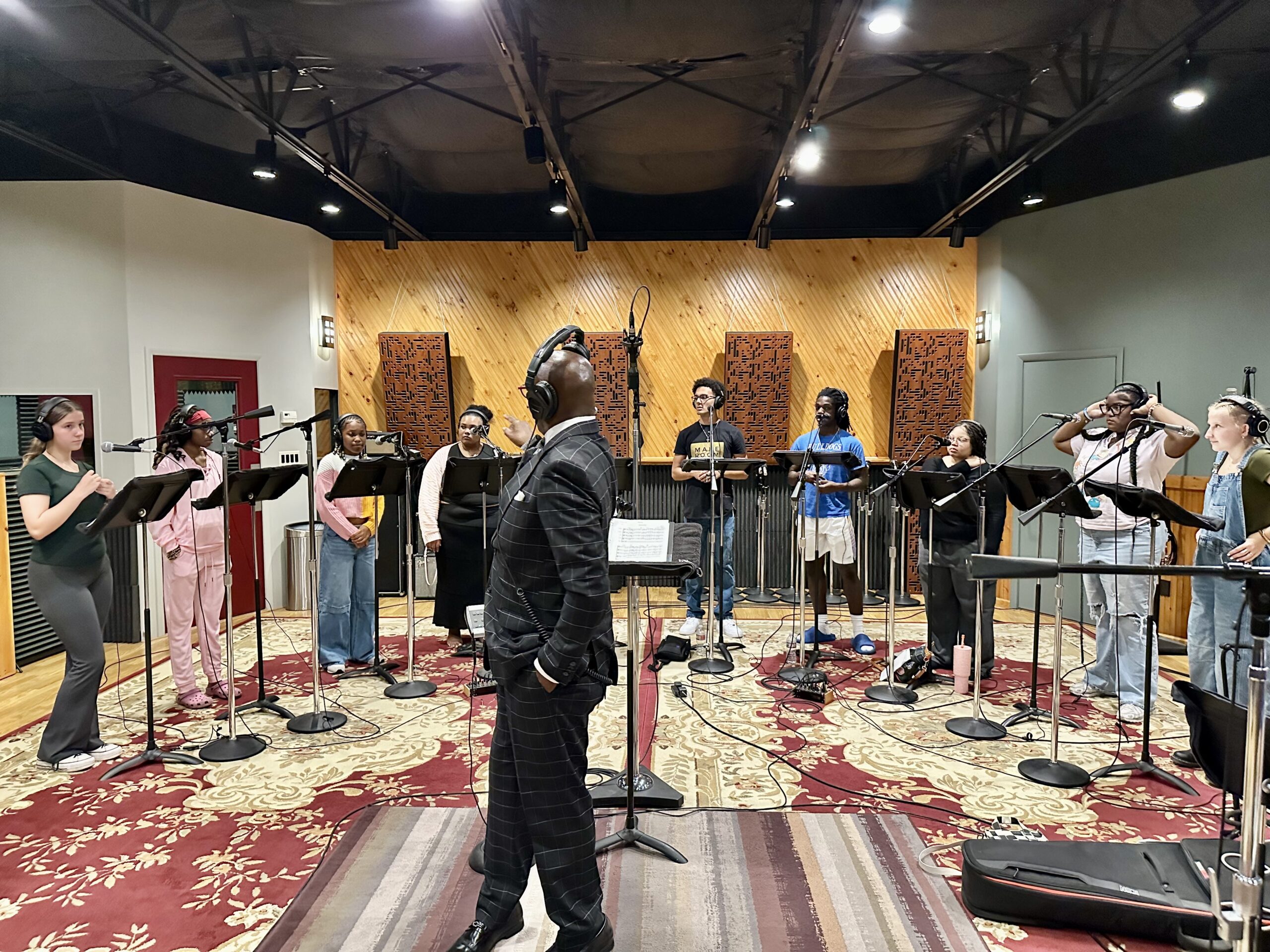
DR. TODD R. WILKINSON
EASTMAN WINDS ARTIST


PROGRAM OVERVIEW
+ SEASON 8 POSTERS
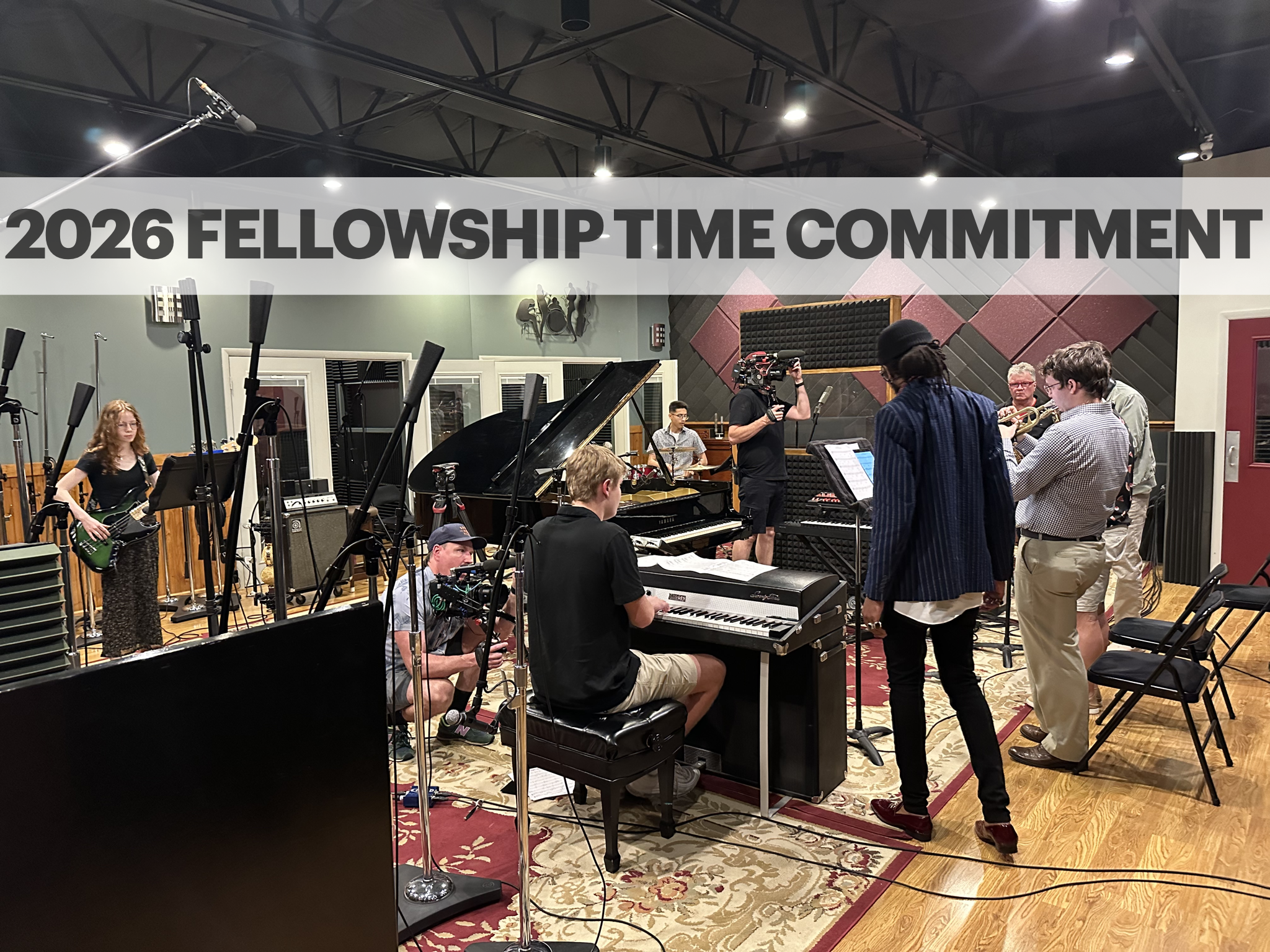
INVEST IN YOUR PERSONAL MUSICAL GROWTH

NO BARRIERS TO PARTICIPATION
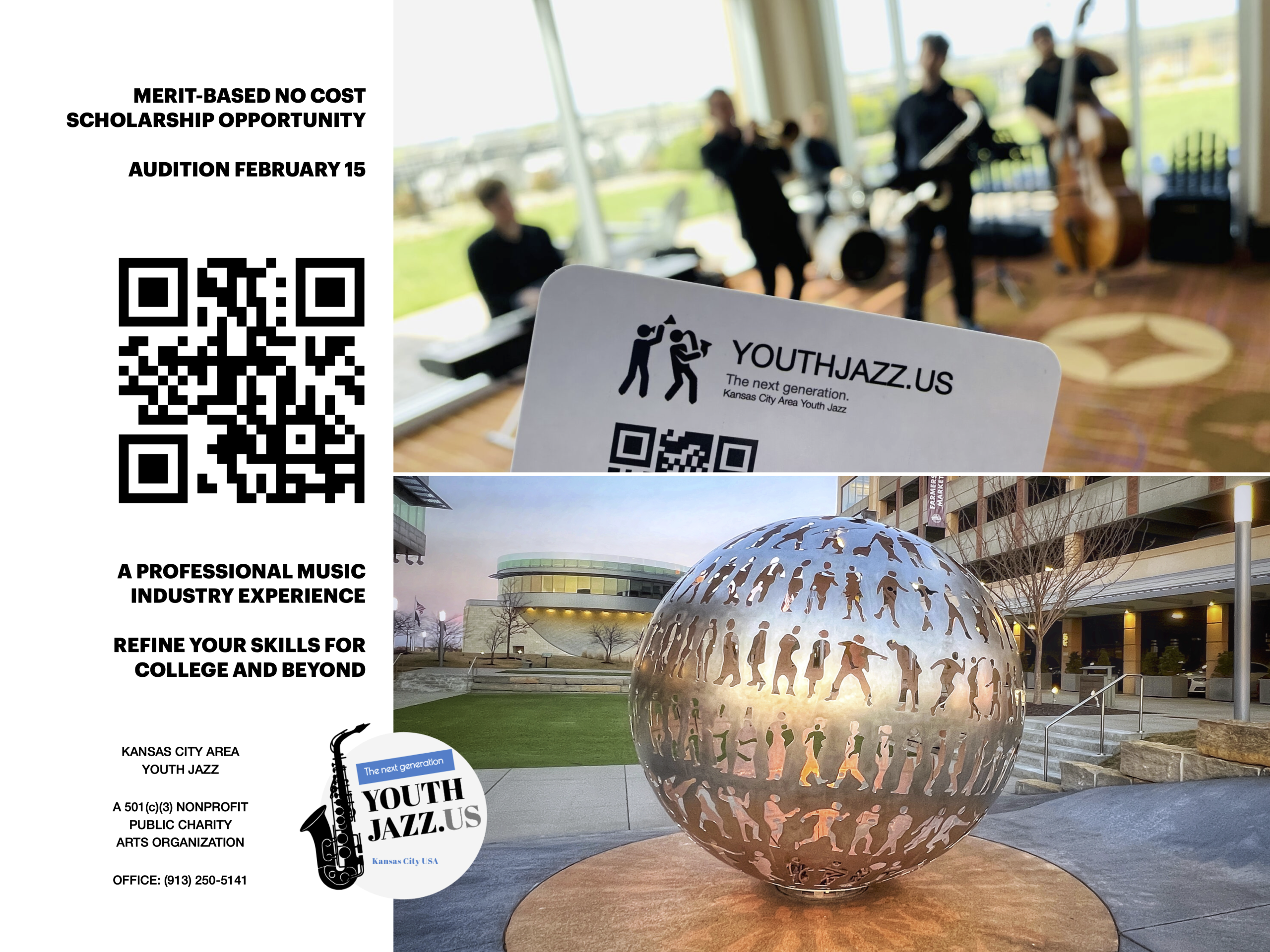
CALL US TODAY TO RESERVE YOUR FELLOWSHIP AUDITION APPOINTMENT

Office: (913) 250-5141
Email: director@youthjazz.us
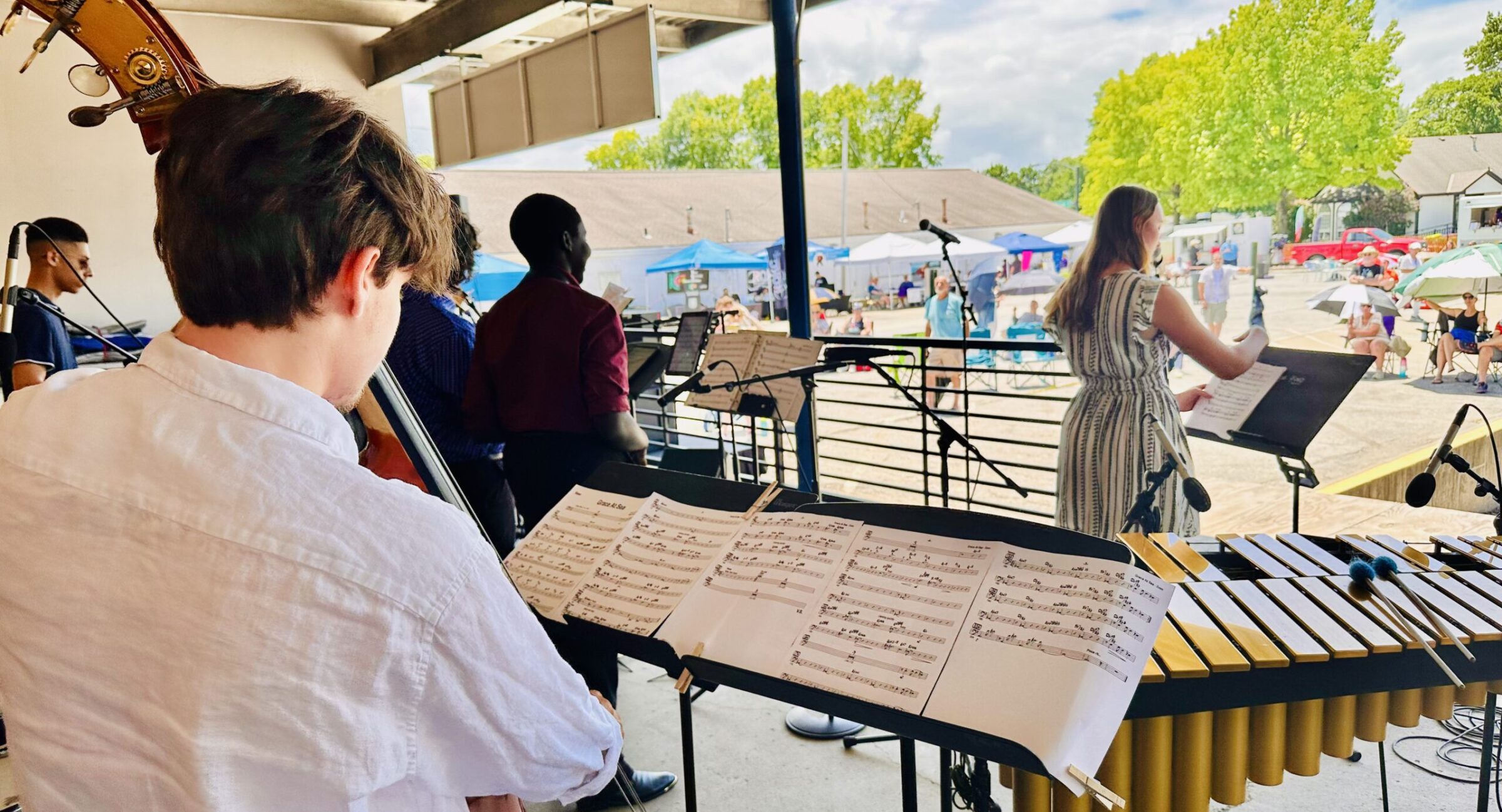
BUSINESS IMPRINT + SITE MENU
